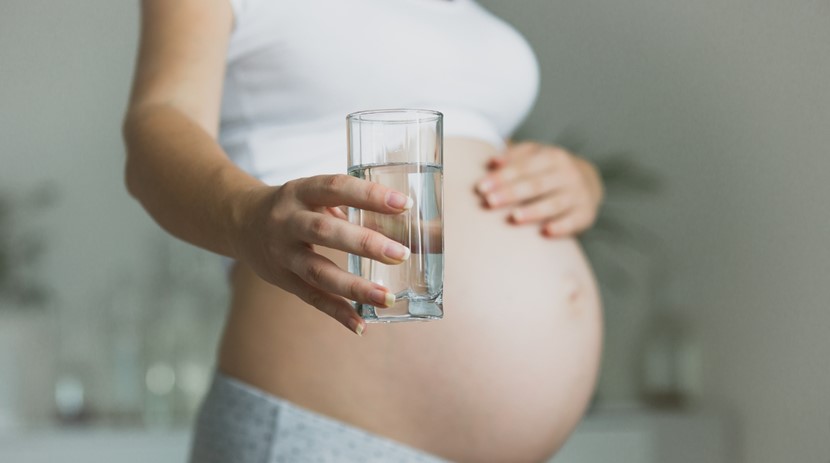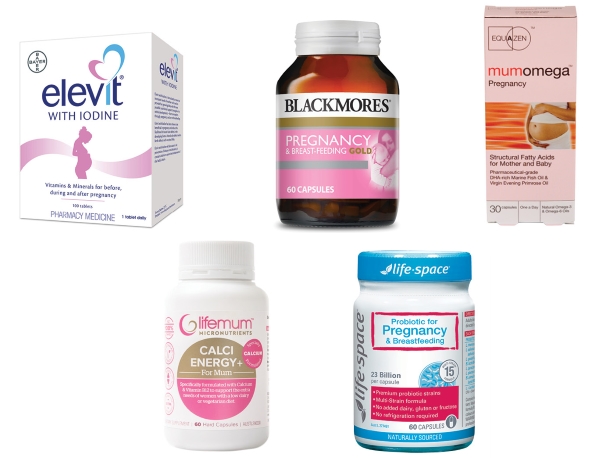Prenatal supplements: the essentials

Our diets alone don’t tend to have all the nutrients our growing babies need in utero. Dr Emma Parry expands on the case for prenatal supplements.
We all know that a healthy and nutritious diet is important for our general health. When you’re pregnant, there are no major changes required if you already have a healthy diet, however there are some safety considerations. In general, any food which is cooked and stored in a chiller is best avoided, as it can harbour listeriosis. So why all the talk of needing to take pregnancy supplements? These contain micronutrients that are often hard to get in our diet, even when we eat a wide variety of healthy foods. We know there is mounting evidence that our diets are lacking in some vitamins and minerals which are important for a healthy pregnancy and foetal development.
Getting the levels correct for a pregnancy can take a couple of months, so it is ideal to start taking supplements prior to conceiving. Often by the time a pregnancy is recognised, many of the important foetal structures have already developed.
The essentials
Folic acid supplementation prior to pregnancy, and in the first part of pregnancy, has been shown to reduce the chances of the baby having spina bifida. Iodine supplementation is also recommended to assist in foetal thyroid function. What is also emerging is that other vitamins and minerals are important for a healthy pregnancy, including fertility and avoiding miscarriage, and that a wider approach is required. One particular micronutrient is choline, which is related to folic acid and the B vitamins. Research is showing that choline is involved in the development of the nervous system and that it is not present in many foods. The majority of women eating a varied Western-style diet will not get the recommended daily intake.
In pregnancy, a woman’s calcium requirement increases as bones are being made for a new small human. This is even more important when a woman is breastfeeding. Women who have plenty of dairy in their diets will be able to keep up with demand, but these days many women avoid dairy for reasons of choice or intolerance. If a woman is vegan or avoiding dairy, a calcium supplement will be important, and for women on a vegetarian diet, B12 is also required.
Most women will have heard of the benefits of fish in pregnancy for baby’s brain development. The main important substance in fish is Docosahexaenoic acid (DHA), and this can be difficult to get from diet alone. Up to two or three serves of fish a week is recommended in a pregnant woman’s diet to meet this requirement. Take care though, as more than this can increase the risk of heavy metal intake. A supplement containing DHA is an alternative way of getting an adequate intake of DHA when the woman’s diet does not meet the fish requirement. Vegetarian supplements of DHA are also available.
Probiotic power
Probiotics are the new buzz word, and with good reason! The medical world is catching on to this new phenomenon and there is a huge amount of research being published in many different areas of medicine. The gut is an amazing organ we are learning more about every day. It contains bacteria and viruses which live together, referred to as the microbiome. The microbiome acts to protect us from invading bugs, support healthy food absorption, and even support the function of immune cells and firing of the nerves lining the gut. All of this means that, if there is a problem with the microbiome, this can have far-reaching effects on the brain, metabolism and immunity. Of course in pregnancy, we are not just considering mum, we are also thinking of the baby. In pregnancy, probiotics are being examined for their benefits on mood and anxiety, glucose metabolism, and the prevention of diabetes and preterm labour.
Babies born via Caesarean are not exposed to the same variety and concentrations of bacteria as babies that pass through the birth canal. A probiotic for mum before birth, and for baby after birth, has been shown to both reduce complications for the woman having a C-section, and ensure a healthy microbiome for her baby. However, all probiotics are not the same and different strains have different benefits. It is important to take a probiotic which is designed for pregnancy or your baby.
After birth, the breastfeeding mum is the source of nutrition for baby. As an obstetrician, I encourage women to breastfeed, if possible, as breastmilk has so many benefits which can’t be found in formula. The levels of most components of breastmilk are a reflection of mum’s levels. Some micronutrients, such as lutein and choline, are very high in breastmilk. It is hard for mums to keep up with lutein in particular, which is important for vision and neural development, so a supplement with lutein is a good idea.
|
Dr Emma Parry is an obstetrician, gynaecologist and maternal foetal medicine subspecialist based in Auckland. |

Elevit, RRP$92.99 from pharmacies; Blackmores Pregnancy and Breastfeeding Gold, RRP$29.99 from selected pharmacies and supermarkets; Mumomega pregnancy capsules, RRP$29.99 from pharmacies and selected health stores; LifeMum Calci Energy+, RRP$19.90 from pharmacies nationwide; Life-Space Probiotics for Pregnancy and Breastfeeding, RRP$44.90, anzpharma.co.nz.

